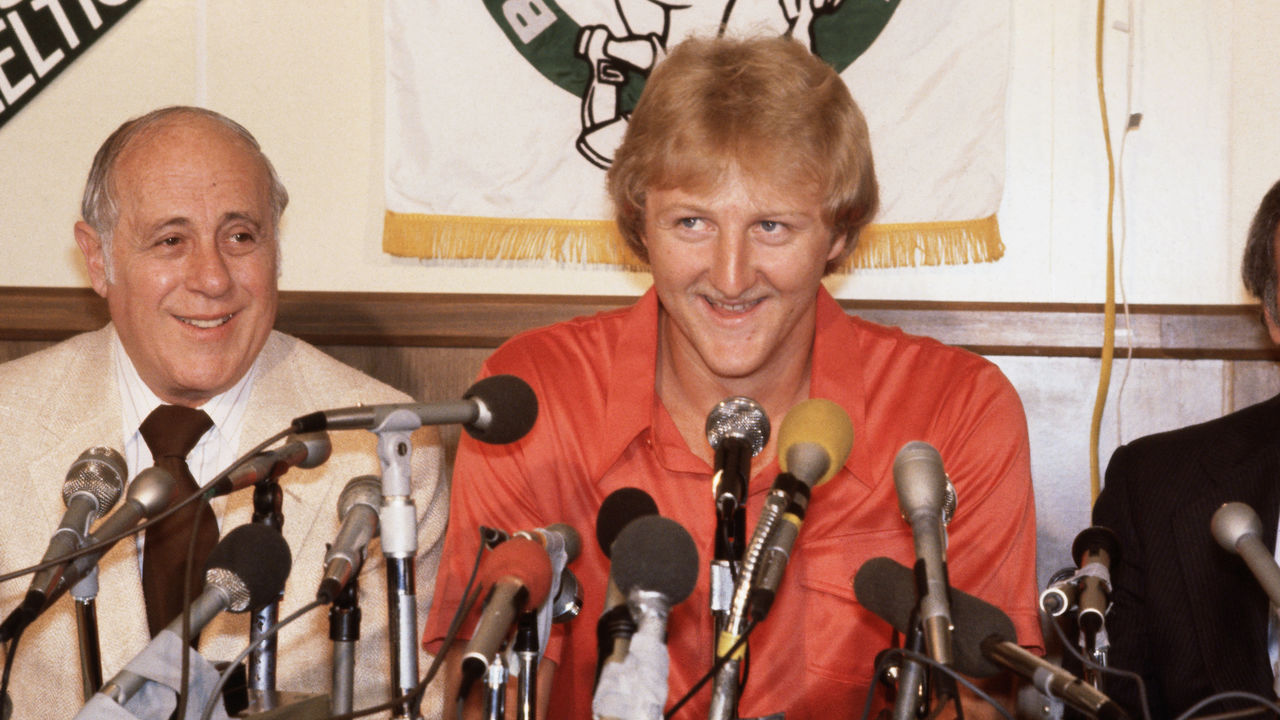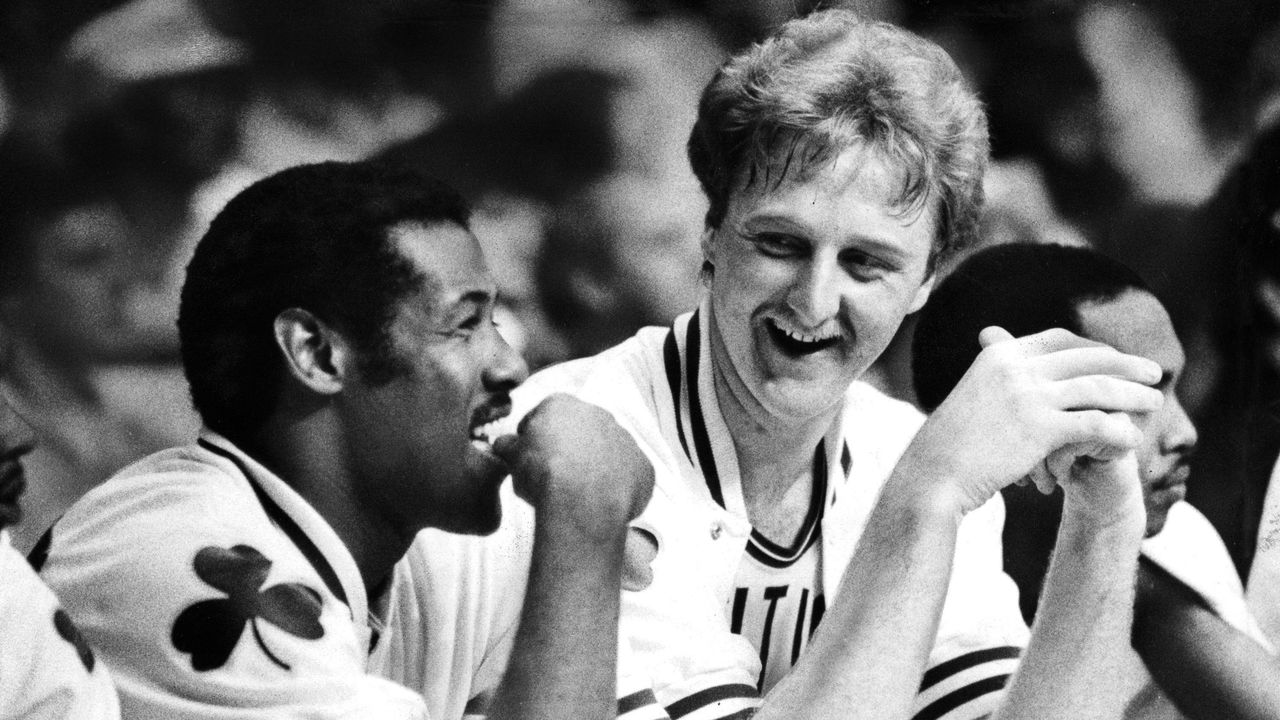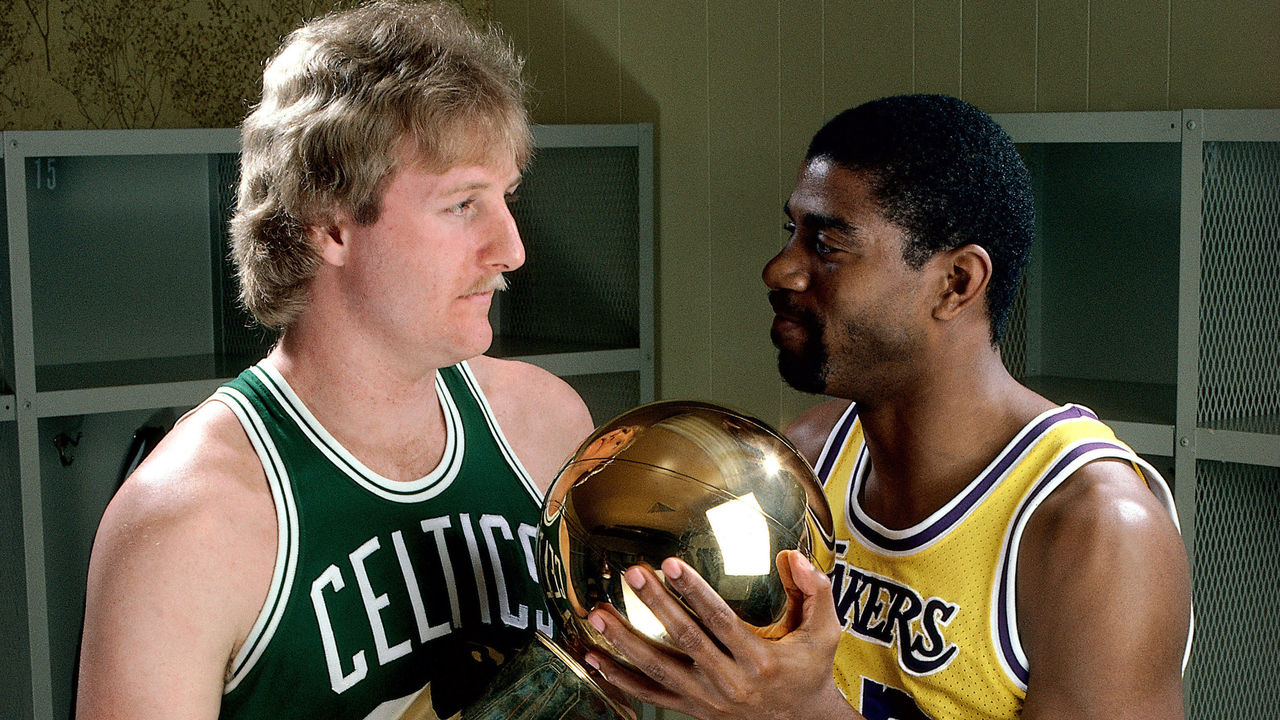Top 25 rookie seasons in NBA history: No. 11 Larry Bird
The greatest rookie seasons in NBA history share a number of qualities, starting with individual statistical dominance. However, you can't overlook the context beyond the box score; initial expectations, team success, and overall legacy all matter.
While we wait for the 2019-20 season to resume, theScore's NBA editors have dusted off the record books to determine the top 25 rookie seasons in league history.
No. 11 in our series is Boston Celtics legend Larry Bird. Catch up on previous posts in the series here.
Before the Association
Bird initially committed to playing for legendary Indiana head coach Bob Knight, but dropped out less than a month into his freshman year in 1974. He returned home and figured he'd enter construction. Bird's basketball hiatus was only temporary as he was back on the court two years later for Indiana State.
From 1976-79, the 6-foot-9 forward brought the Sycamores to heights that haven't been reached since his departure. Bird was an All-American in each of his three collegiate campaigns and the Naismith Player of the Year during his senior year. Indiana State entered the 1979 national championship game with a perfect 33-0 record, but were upset by Michigan State as Bird shot just 7-of-21 from the field.
The showdown remains the highest-ever television rating for a college basketball game and set the stage for Bird's rivalry with Spartans star Magic Johnson in the years that followed.
Draft day

Bird might've supplanted Magic as the top pick in the 1979 NBA Draft if he wasn't taken sixth overall by the Boston Celtics the year prior. The "Hick From French Lick" was eligible for the 1978 NBA Draft because his original college class at Indiana was graduating the same year. Despite averaging 31.3 points and 12.4 boards across his sophomore and junior years, Bird fell out of the top five due to signability concerns.
Celtics general manager Red Auerbach infamously stated he wouldn't pay Bird more than the team's highest-paid player at the time, while Bird's agent refused to accept any lowball offers for his client. With both sides at a contract impasse, Bird returned to school and could reenter the draft if he didn't reach an agreement with Boston beforehand.
With only a few weeks to spare, the Celtics inked Bird to a five-year, $3.25-million contract, making him the highest-paid rookie in sports history. Although the 1978 draft class also included Micheal Ray Richardson and Maurice Cheeks, Bird soon proved he was well worth the wait and price.
Individual success
Boston dealt All-Star center Bob McAdoo prior to the 1979-80 season, which opened a spot for Bird in the Celtics' starting frontcourt alongside Cedric Maxwell and Dave Cowens. The future Hall of Famer shined on both ends of the floor, demonstrating great defensive instincts and a lethal outside stroke during his Rookie of the Year campaign.
Bird led the Association in defensive win shares (5.6), ranked third in 3-point percentage (40.6%), and finished 10th in rebounding (10.4 boards per game). He averaged team highs in points (21.3) and steals (1.7) while also dishing out 4.5 assists per contest. Bird earned his first of 12 All-Star selections that same season and was later named to the All-NBA first team.
Team success

With Bird aboard, Boston transformed into a title contender, winning 32 more games than the year prior. The Celtics finished the 1979-80 campaign as the only team within the top five in offensive and defensive efficiency after placing 19th in both categories during the previous season.
Bird may have spearheaded the club's improvement, but he had plenty of help. Maxwell owned the NBA's top field-goal percentage (60.9%), guard Nate "Tiny" Archibald racked up the second-most assists (671), and newly acquired wing M.L. Carr was a defensive pest.
Boston registered a 61-21 mark and headed into the playoffs as the league's No. 1 overall seed, but fell in five games to the Philadelphia 76ers in the Eastern Conference final.
Enduring legacy

Bird was at the center of the Celtics-Lakers rivalry that ruled most of the '80s. He played a key role in Boston's championship run during his second year in the Association and was the Finals MVP in each of the franchise's other two coronations that decade, including the Celtics' 1983-84 title win over their arch nemesis.
In 1986, Bird joined Bill Russell and Wilt Chamberlain as the only players to capture three straight MVP awards. The following campaign, Bird made history again as the first member of the 50-40-90 club and repeated the feat in 1987-88. Back problems forced Bird to retire in 1992, but not before he amassed nine All-NBA first-team selections and three NBA All-Defensive second-team nods.
Bird called it a career after winning an Olympic gold medal as a member of "The Dream Team." His competitive nature eventually led him to coaching and the upper ranks of the front office. Bird is the only person in league history to have won Rookie of the Year, Most Valuable Player, NBA Finals MVP, All-Star MVP, Coach of the Year, and Executive of the Year.
Come back on Wednesday to see who came in at No. 10 in theScore's Top 25 Rookie Seasons series.